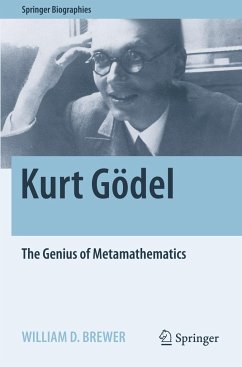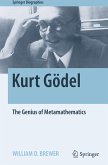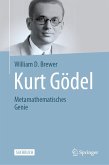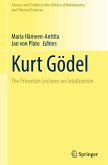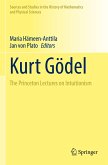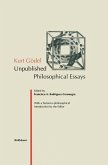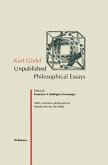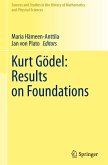During his lifetime, Kurt Gödel was not well known outside the professional world of mathematicians, philosophers and theoretical physicists. Early in his career, for his doctoral thesis and then for his Habilitation (Dr.Sci.), he wrote earthshaking articles on the completeness and provability of mathematical-logical systems, upsetting the hypotheses of the most famous mathematicians/philosophers of the time. He later delved into theoretical physics, finding a unique solution to Einstein's equations for gravity, the 'Gödel Universe', and made contributions to philosophy, the guiding theme of his life.
This book includes more details about the context of Gödel's life than are found in earlier biographies, while avoiding an elaborate treatment of his mathematical/scientific/philosophical works, which have been described in great detail in other books. In this way, it makes him and his times more accessible to general readers, and will allow them to appreciate the lasting effects of Gödel's contributions (the latter in a more up-to-date context than in previous biographies, many of which were written 15-25 years ago). His work spans or is relevant to a wide spectrum of intellectual endeavor, and this is emphasized in the book, with recent examples. This biography also examines possible sources of his unusual personality, which combined mathematical genius with an almost childlike naiveté concerning everyday life, and striking scientific innovations with timidity and hesitancy in practical matters. How he nevertheless had a long and successful career, inspiring many younger scholars along the way, with the help of his loyal wife Adele and some of his friends, is a fascinating story in human nature.
This book includes more details about the context of Gödel's life than are found in earlier biographies, while avoiding an elaborate treatment of his mathematical/scientific/philosophical works, which have been described in great detail in other books. In this way, it makes him and his times more accessible to general readers, and will allow them to appreciate the lasting effects of Gödel's contributions (the latter in a more up-to-date context than in previous biographies, many of which were written 15-25 years ago). His work spans or is relevant to a wide spectrum of intellectual endeavor, and this is emphasized in the book, with recent examples. This biography also examines possible sources of his unusual personality, which combined mathematical genius with an almost childlike naiveté concerning everyday life, and striking scientific innovations with timidity and hesitancy in practical matters. How he nevertheless had a long and successful career, inspiring many younger scholars along the way, with the help of his loyal wife Adele and some of his friends, is a fascinating story in human nature.
"The book is generously illustrated, often with color photographs and diagrams, mostly of individuals mentioned in the book, or of maps and buildings where Gödel lived or stayed ... at various periods throughout his life. ... anyone interested in a general overview of his biography and broad sketches of his technical works and philosophical/theological views will find this an easy read." (Joseph W. Dauben, Mathematical Reviews, September, 2023)
"This biography of Kurt Gödel is written for a wide audience with a limited mathematical background. ... The biography is written in a clear and readable style and is very well researched. I was particularly impressed by the author's familiarity with all things German. ... I strongly recommend this biography to anyone interested in the life (and the work) of Kurt Gödel, whose incompleteness theorems spelled the end of Hilbert's program." (Franz Lemmermeyer, zbMATH 1505.01001, 2023)
"This biography of Kurt Gödel is written for a wide audience with a limited mathematical background. ... The biography is written in a clear and readable style and is very well researched. I was particularly impressed by the author's familiarity with all things German. ... I strongly recommend this biography to anyone interested in the life (and the work) of Kurt Gödel, whose incompleteness theorems spelled the end of Hilbert's program." (Franz Lemmermeyer, zbMATH 1505.01001, 2023)

